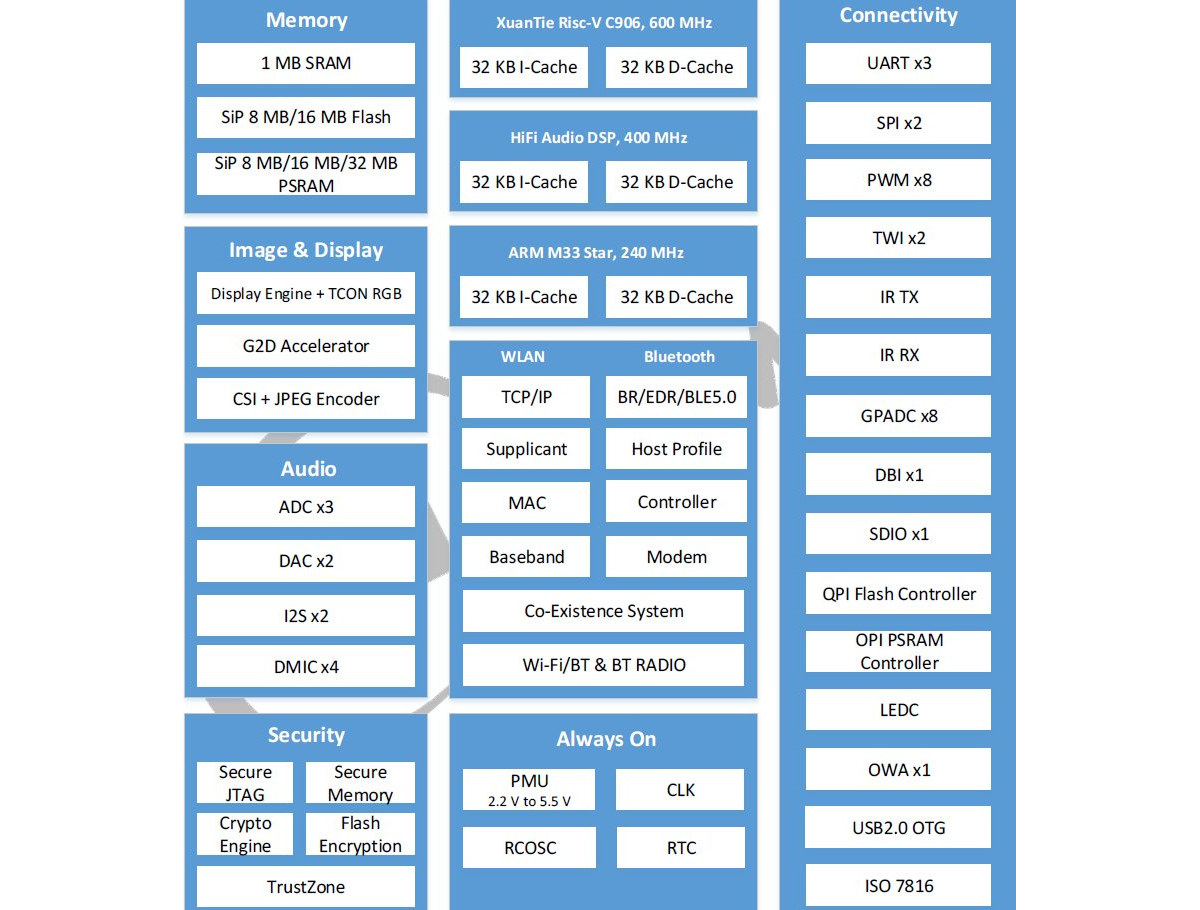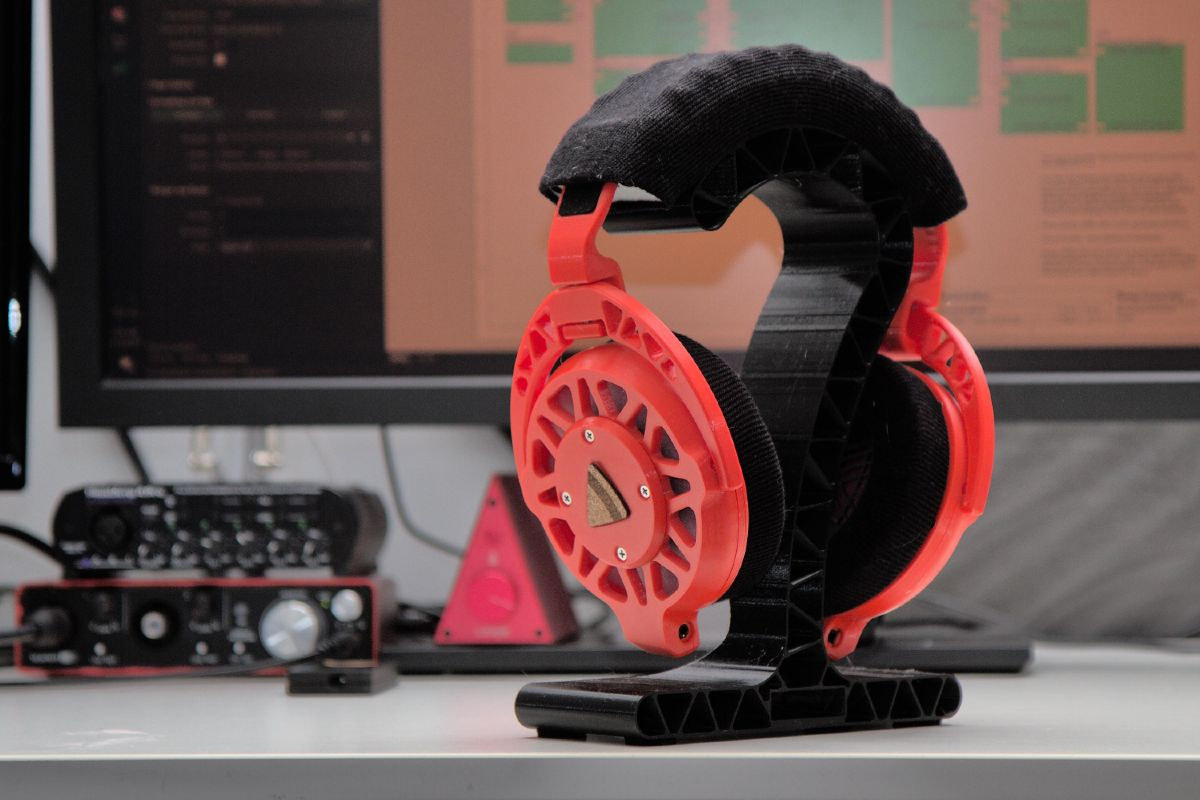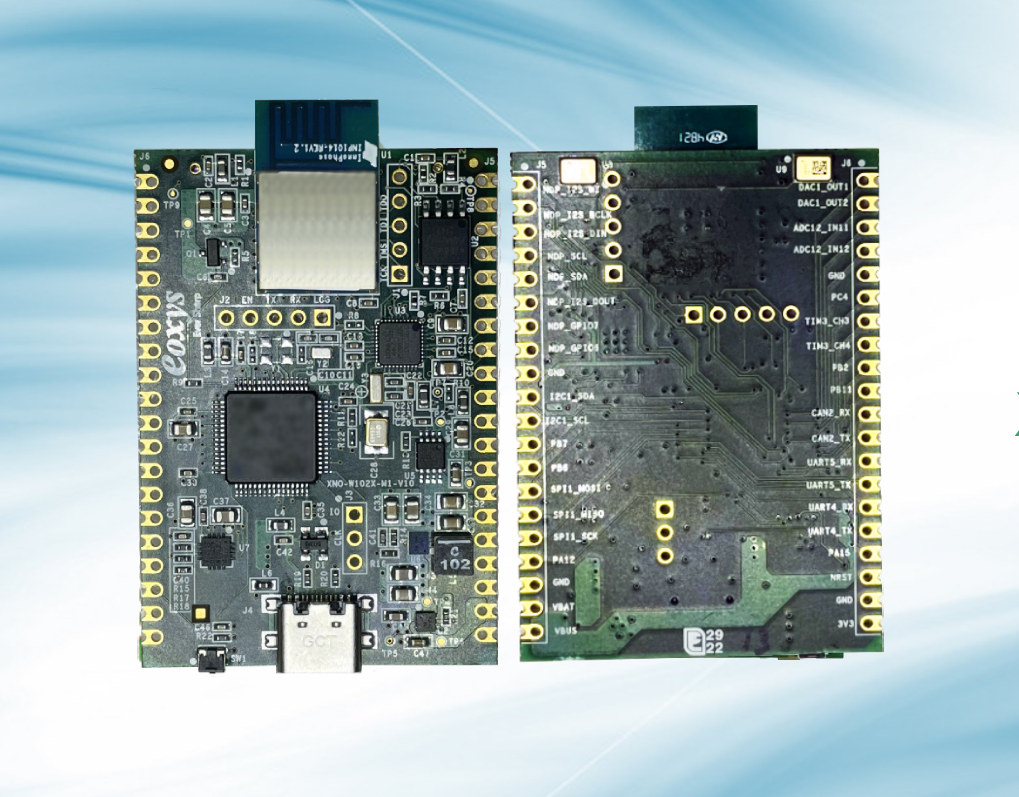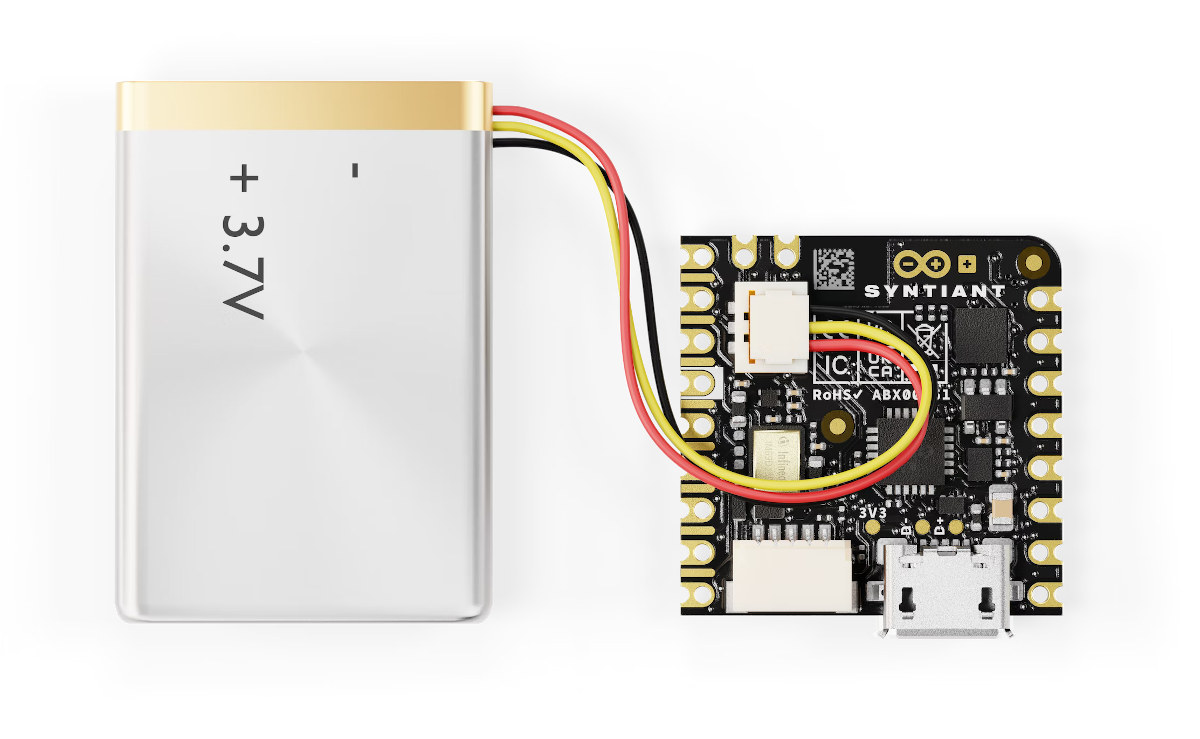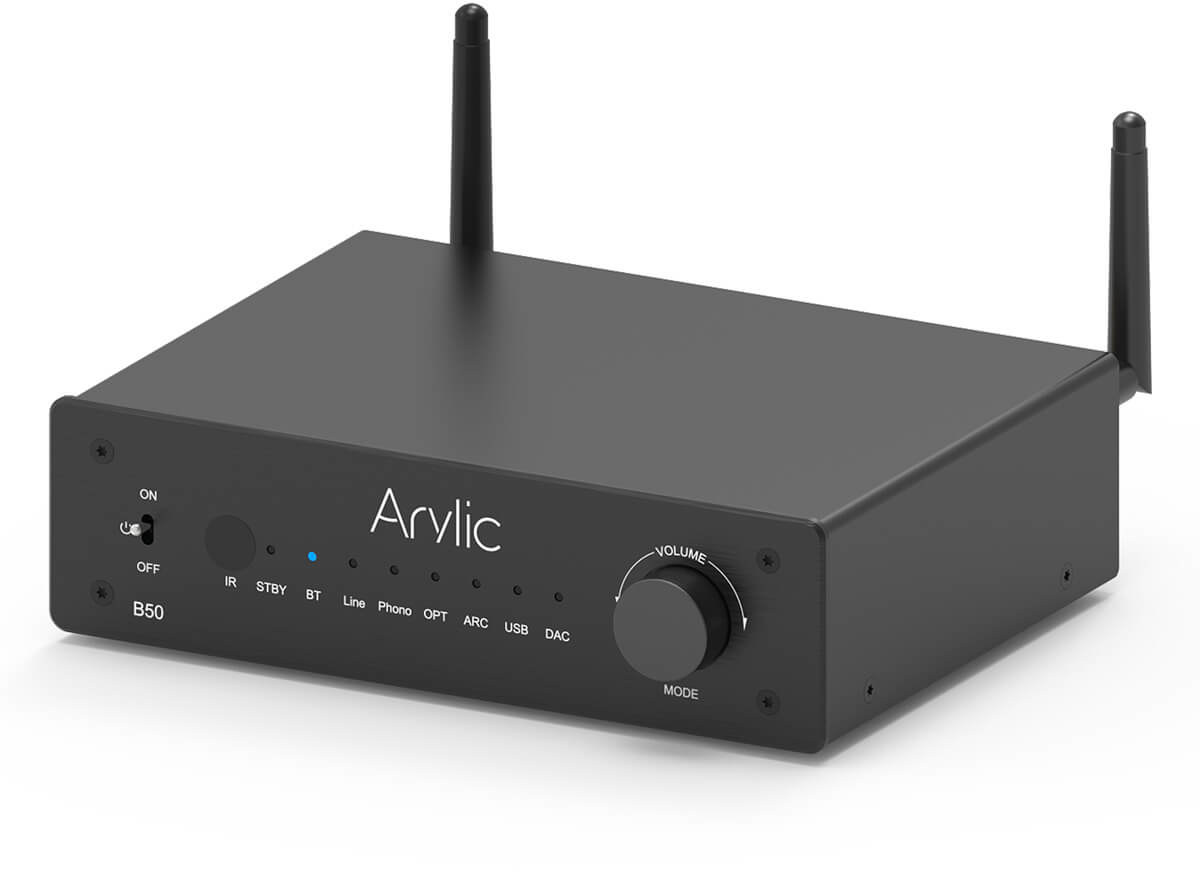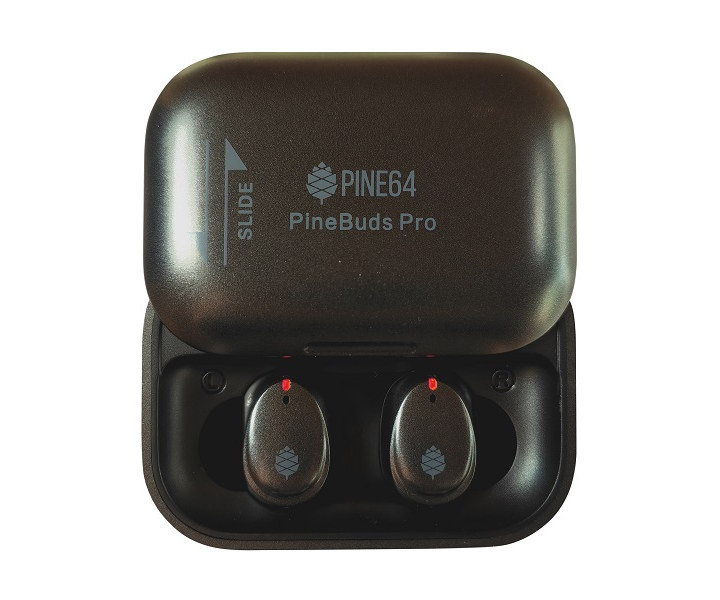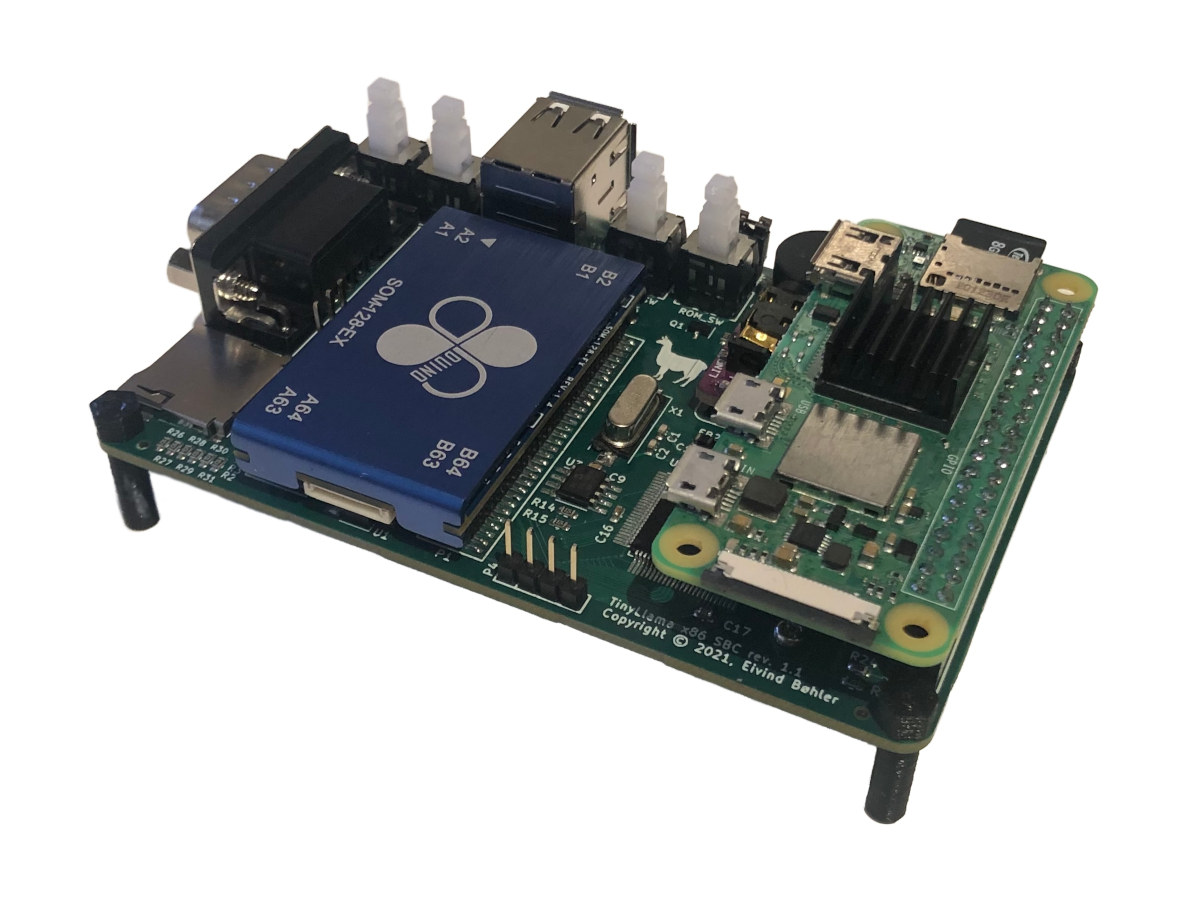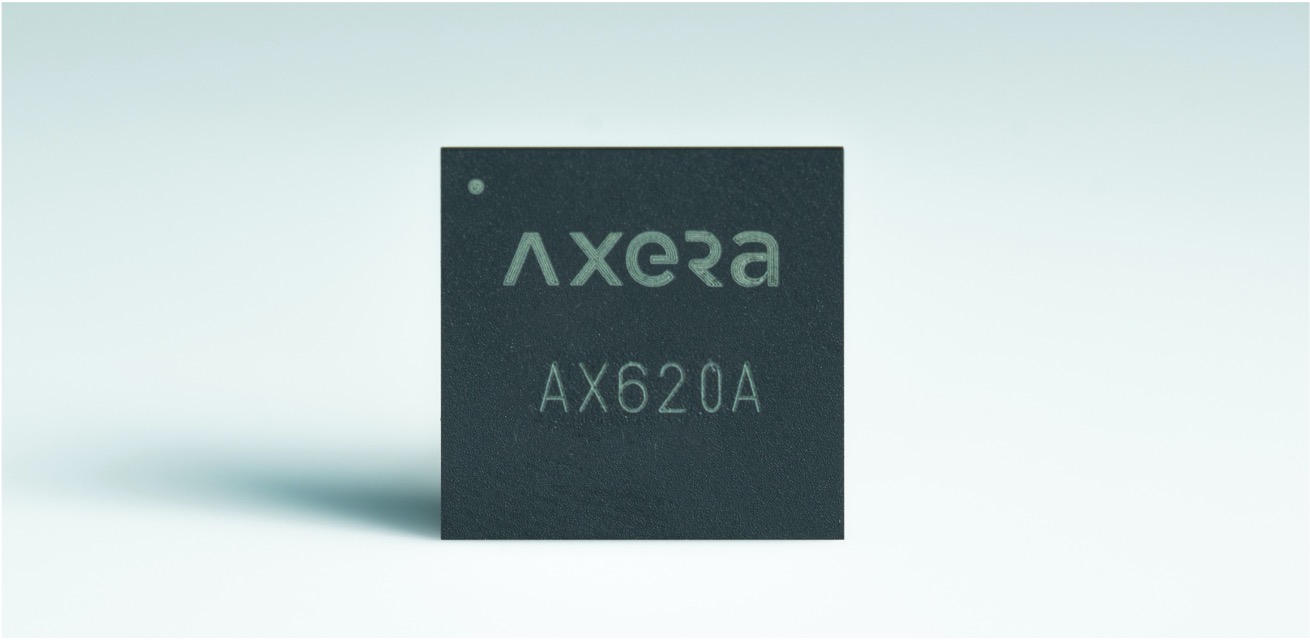Allwinner is mostly known for its low-cost Arm processor running Android or Linux, but the Allwinner R128 is a wireless audio SoC with a C906 64-bit RISC-V application core, an Arm Cortex-M33 real-time time core, a HiFi 5 DSP, and built-in WiFi and Bluetooth connectivity. The SoC also comes with 1MB SRAM, up to 16MB flash, up to 32MB PSRAM, display and camera interfaces, support for microphone arrays, and plenty of I/Os that should make it suitable for smart speakers and other voice-controlled home appliances with or without display. Allwinner R128 specifications: Application core – Xuantie C906 64-bit RISC-V core clocked at 600 MHz. DSP – Cadence HiFi 5 audio DSP clocked at 400 MHz Communication core – Arm M33 Star (Cortex-M33 from Arm China?) core clocked at 240 MHz with Trustzone support Memory 1MB SRAM 8MB, 16MB, or 32MB PSRAM (SiP = System-in-Package) OPI PSRAM controller Storage QPI flash […]
Ploopy – 3D printed open-source hardware headphones feature Raspberry Pi RP2040 MCU, TI PCM3060 24-bit DAC
I don’t think I’ve ever written about open-source hardware headphones. But that’s precisely what Ploopy offers with an amplifier based on a Raspberry Pi RP2040, a Texas Instruments PCM3060 24-bit DAC, and an amplifier circuit, as well as 3D printed parts and open-source firmware written in C. As we’ll see further below the project is reasonably well documented, and you can either build it from scratch, purchase a fully-assembled kit, or something in the middle. I suppose you could even do some knitting since woven covers are part of the build just in case making your own PCBs and 3D printing parts are not your things. The electronics are comprised of two boards: The Gould amplifier board with the Raspberry Pi RP2040, Texas Instruments PCM3060 24-bit 96/192 kHz DAC, and several TI OPA1688 audio operational amplifiers The Mazzoleni driver flex boards going into the left and right rings with a […]
Eoxys Xeno+ Nano ML board combines NuMicro M2354 or STM32L4 MCU with Talaria TWO ultra low power WiFi & BLE 5.0 module
Eoxys Xeno+ Nano ML is a wireless machine learning (ML) board with either Nuvoton NuMicro M2354 or STMicro STM32L4 microcontroller, InnoPhase IoT’s Talaria TWO ultra-low power Wi-Fi and BLE 5.0 module, and the Syntiant Core 2 NDP120 neural decision processor we first noticed in the Arduino Nicla Voice module a few weeks ago. The boards/modules are designed for intelligent and secure IoT devices for smart home, industrial, and medical automation applications, and the company claims it can be used in Wi-Fi IoT sensors with up to 10+ years thanks to the low-power chips and circuitry used in the design. Eoxys Xeno+ Nano ML specifications: General purpose MCU (one or the other) STMicro STM32L4 Arm Cortex-M4 microcontroller at 80MHz with 1MB flash, 128KB/352KB SRAM Nuvoton NuMicro M2354 Arm Cortex-M23 microcontroller at 96MHz with 1MB flash, 128KB SRAM. Wireless module Innophase Talaria TWO ultra-low-power 2.4GHz 802.11b/n/g WiFi 4 and Bluetooth LE 5.0 […]
Arduino Nicla Voice enables always-on speech recognition with Syntiant NDP120 “Neural Decision Processor”
Nicla Voice is the latest board from the Arduino PRO family with support for always-on speech recognition thanks to the Syntiant NDP120 “Neural Decision Processor” with a neural network accelerator, a HiFi 3 audio DSP, and a Cortex-M0+ microcontroller core, and the board also includes a Nordic Semi nRF52832 MCU for Bluetooth LE connectivity. Arduino previously launched the Nicla Sense with Bosch SensorTech’s motion and environmental sensors, followed by the Nicla Vision for machine vision applications, and now the company is adding audio and voice support for TinyML and IoT applications with the Nicla Voice. Nicla Voice specifications: Microprocessor – Syntiant NDP120 Neural Decision Processor (NDP) with one Syntiant Core 2 ultra-low-power deep neural network inference engine, 1x HiFi 3 Audio DSP, 1x Arm Cortex-M0 core up to 48 MHz, 48KB SRAM Wireless MCU – Nordic Semiconductor nRF52832 Arm Cortex-M4 microcontroller @ 64 MHz with 512KB Flash, 64KB RAM, Bluetooth […]
Arylic B50 – A Qualcomm QCC3040 based Bluetooth stereo amplifier with audio transmitter (Sponsored)
Arylic B50 is a Bluetooth 5.2 stereo amplifier with an audio transmitter based on Qualcomm QCC3040 low-power Bluetooth Audio SoC that’s typically used in wireless earbuds. The all-in-one Bluetooth amplifier supports aptX HD audio transmission and reception, can handle two Bluetooth sources or two Bluetooth speakers or earbuds, and offers a wide range of interfaces including HDMI ARC, Phono in, RCA in, optical S/PDIF in, subwoofer out, and more. The system can also be connected to two wired speakers up to 50W @ 4 Ohms. Arylic B50 specifications: SoC – Qualcomm QCC3040 with 32-bit application processor @ 32 MHz, 32-bit system processor @ 32 MHz, Kalimba DSP @ 120 MHz, Bluetooth 5.2 and aptX HD support. Bluetooth Version 5.2 with up to 15m range Transmit – 2x Bluetooth Tx for up to 2 Bluetooth speakers or earbuds Receiver – 2x Bluetooth Rx for up to 2 Bluetooth transmitter devices Supported […]
PineBuds Pro ANC & TWS Bluetooth earbuds with open-source firmware launched for $70
Pine64 has just started taking orders for the PineBuds Pro ANC (Active Noise Cancellation) & TWS (True Wireless Sound) earbuds based on the Bestechnic BES2300-YP dual-core Arm Cortex-M4F Bluetooth audio microcontroller found in the PineSound development board. There are plenty of TWS earbuds on the market, but the PineBuds Pro earbuds are hackable thanks to an open-source firmware that could pave the way to interesting features, and potentially the development of open-source firmware transforming the earbuds into hearing aids. PineBuds Pro specifications: WiSoC – Bestechnic BES 2300YP dual-core Arm Cortex-M4F @ up to 300 MHz with HW DSP instruction, 992KB SRAM, 4MB flash, Bluetooth 5.2 dual mode. Supports hybrid ANC (active noise cancellation) and TWS (true wireless stereo). Wireless Bluetooth 5.2 dual-mode connectivity Bluetooth Profile: A2DP, AVRCP, HFP Audio 3x microphones: FeedForward, FeedBack, Talk with Hybrid Adaptive ANC technology blocking out background noise up to 45dB 6 mm dynamic transducer […]
TinyLlama x86 retro computer uses the Raspberry Pi Zero 2 W as a MIDI synthesizer
The TinyLlama x86 retro computer board is designed to run DOS games on a DM&P Vortex86EX 32-bit x86 processor and integrates a MIDI synthesizer based on Raspberry Pi Zero 2 running MT32-Pi firmware. Growing up playing games on 386/486-era computers, Eivind Bohler looked for similar recent hardware to play DOS games and after discovering the 86Duino x86 Arduino-compatible board, he decided to use the SOM-128-EX module powering the board to create the TinyLlama board with a Sound Blaster Pro-compatible Crystal CS4237B sound chip and a MIDI synthesizer. TinyLlama specifications: D&MP SOM-128-EX system-on-module with Processor – DM&P Vortex86EX 32-bit x86 processor @ 60 to 500 MHz System Memory – 128MB DDR3 Storage – 8MB SPI flash Storage – MicroSD card socket Video Output – VGA up to 1024×768 @ 60 Hz using the Vortex86VGA module running off an x1 PCI-e lane Audio Crystal CS4237B all-in-one audio chip MIDI synthesizer with Raspberry Pi […]
AXERA AX620A 4K AI SoC delivers up to 14.4 TOPS for computer vision applications
AXERA AX620A is a high-performance, low-power AI SoC with a quad-core Arm Cortex-A7 processor and a 14.4TOPs @ INT4 or 3.6TOPs @ INT8’s NPU that is slightly inferior to the Amlogic A311D, and mainly used for AI vision applications. With high computing power and built-in image processing capabilities, the AX620A can support a wide range of AI workloads. It also offers low power consumption with low standby power and fast wake-up, so the chip can be integrated into battery-powered products. AXERA AX620A specifications: CPU – Quad-core Arm Cortex-A7 @ 1.0 GHz with 32KB L1 I-cache + 32KB L1 D-cache per core, 256KB L2 cache, FPU and NEON NPU – 14.4 TOPS @ INT4, 3.6 TOPS @ INT8 with support for Imagenet, AlexNet, VGG, ResNet, GoogLeNet, Faster R-CNN, SSD, FPN, Yolo V3, and other neural networks. ISP Proton AI-ISP up to 4Kp30 4 channels of camera support up to 4x 1080p30 Support […]


